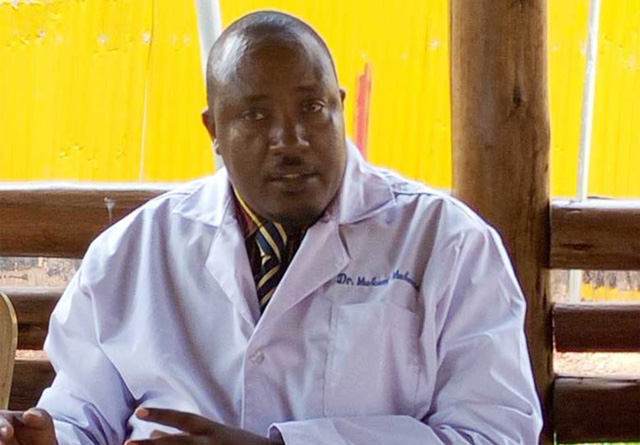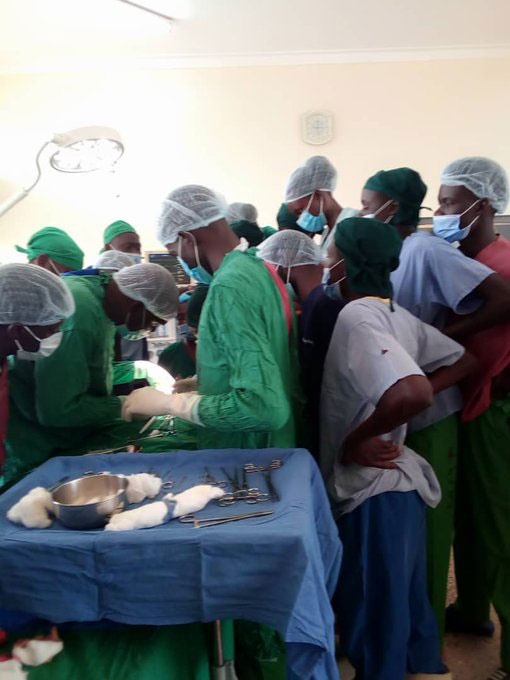
Kampala, Uganda | FLAVIA NASSAKA – URN | The Uganda Medical Association (UMA) has written to the government asking it to address low staffing levels and lack of necessary equipment in regional referral hospitals across the country.
In an interview on Wednesday, the UMA Secretary General Dr Mukuzi Muhereza narrated how accusations of corruption, low morale, poor staffing, low budgets and increasing demand for medicine and facilities with little response from government, is undermining efforts in the health sector.
He said even the recent much hailed operation by medics at Soroti Hospital was achieved under miraculous circumstances, considering that the facility operates in dire conditions.
Soroti hospital registered a historic surgery on March 26th, 2021 after successfully separating a conjoined living twin from his dead sister.
He said the hospital lacks a High Dependence Unit (HDU) where patients in critical condition, are monitored from, in addition to not having enough staff.
Muhereza illustrated the dire situation, by saying that for Doctors in Soroti to get a CT scan to be able to diagnose an infection or guide procedures such as surgery, their patients have to move to another district, in this case Mbale, to get the service in a private health facility.

Corruption complaints
Ministry of Health figures show an average of 500 doctors graduate and are joined by 150 specialists each year.
According to the set procedures, each of the district hospitals should have five specialists, a pediatrician, a surgeon, an internal medicine specialist, a public health specialist and an obstetrician and gynecologist.
But, on UMA’s recent tour of the hospitals, they barely found a hospital that meets that requirement.
UMA president Dr Richard Idro confirmed they visited 14 regional referral hospitals.
“We found Arua Regional Referral Hospital had only 9 of the expected 41 doctors. Positions for 32 doctors at different grades were vacant. For a referral hospital situated in a growing city and which serves the whole of the West Nile region with a population of over 3.5 million people.
“The hospital did not have a single radiologist, anesthesiologist, orthopedic surgeon, Ear Nose and Throat Specialist, or nNeurosurgeon to handle critical emergencies or heart, cancer, kidney, and diabetic specialists”, Dr Richard Idro revealed.
He said Regional Referral hospitals such as Lira and Moroto were even in a worse state with only two specialists each. In others such as Masaka and Kabale Regional Referral hospitals,the discovered that the wage bill was so inadequate that the hospitals are unable to employ additional staff or promote the available qualified staff.
With such challenges, Muhereza says some health workers have been demoralized. Muhereza says many doctors have complained to the association that for one to be deployed they need to part with lots of money to facilitate officials in the district and the Health Service commission.
Medics want the government to not only fill the gaps in hospitals urgently but also ensure that districts have competent District Health Officers (DHOs) to offer technical support.
Muhereza notes that only 79 districts have DHOs. Some districts he says are manned by a non-medical officer. To him, this anomaly can be corrected quickly in less than six months.
Health Service Commission speaks out
While many blame the Health Service Commission, its chairperson Prof Pius Okong says that other than the small budget they have, they also have failed to attract specialists to district hospitals because the system does not enable them to be promoted after deployment.
“Out of 50 hospitals, we have only one out of 10 specialists in general hospitals. The gap is 9 out of 10. We do not have enough, then they, they fear to go to the districts because their is no position above that. You would have to go back to central government to be promoted to consultant. That makes it difficult to attract those specialists, ” says Prof Pius Okong.
.
*******
URN
 The Independent Uganda: You get the Truth we Pay the Price
The Independent Uganda: You get the Truth we Pay the Price



